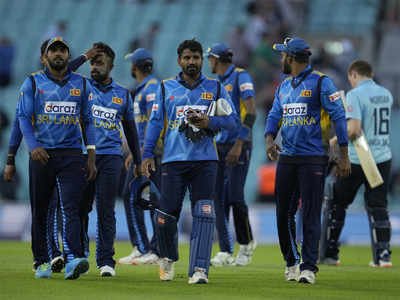In a historic move, the Sri Lankan Parliament has passed a bill that empowers the government to disband the country’s cricket board, signaling a seismic shift in the administration of the nation’s beloved sport. The decision, which caught many by surprise, has ignited a flurry of discussions among cricket enthusiasts, stakeholders, and policymakers alike.
Parliament Intervention: A Bold Step or Overreach?
The Parliament’s decision to intervene in the governance of Sri Lanka Cricket (SLC) raises critical questions about the role of the government in sports administration. While supporters argue that this bold step is necessary to address long-standing issues within the cricket board, critics express concerns about governmental overreach and the potential impact on the autonomy of sports organization.
Decades of Turmoil and Mismanagement
The move to dissolve the cricket board comes on the heels of years of turmoil and allegations of mismanagement within SLC. Infighting, financial irregularities, and a string of disappointing performances by the national team have plagued Sri Lankan cricket, prompting calls for decisive action.
Roots of Dissent: Cricket Board Under Scrutiny
Sri Lanka Cricket has been marred by internal strife and controversies, with factions within the board often at odds over key decisions. Allegations of corruption and financial mismanagement have further eroded public trust in the organization. The Parliament’s decision reflects a growing frustration with the status quo and a determination to restore the integrity of the sport.
A New Dawn for Sri Lankan Cricket?
As the cricketing nation grapples with this unprecedented decision, there is a palpable sense of anticipation regarding the potential for positive change. Many hope that the dissolution of the existing board will pave the way for a fresh start, bringing in new leadership and a renewed focus on the development of the sport at all levels.
What’s Next: Transition Plans and Future Leadership
The government now faces the arduous task of establishing a transition plan for Sri Lanka Cricket. This includes appointing an interim committee to oversee day-to-day operations and formulate a roadmap for the selection of a new cricket board. The choice of leadership in these crucial transitional phases will play a pivotal role in shaping the future trajectory of Sri Lankan cricket.
Global Reactions and Impact on International Cricket
The ripple effect of this decision extends beyond the shores of Sri Lanka, drawing attention from the global cricketing community. The International Cricket Council (ICC) and cricket boards of other nations are closely monitoring the situation, with some expressing concerns about the potential fallout on international fixtures involving Sri Lanka.
Challenges and Opportunities: Balancing Governance and Autonomy
While the move to disband the cricket board addresses immediate concerns, it also raises broader questions about the delicate balance between governmental intervention and the autonomy of sports organizations. Striking the right equilibrium is crucial to ensuring that the governance of cricket is transparent, accountable, and free from political influence.
Public Sentiment and the Future of Cricket in Sri Lanka
Public sentiment regarding the parliamentary decision is divided, reflecting the diverse opinions within the cricket-loving nation. While some view it as a necessary step to rescue Sri Lankan cricket from its current predicament, others worry about the potential consequences of political interference in the sport.
Rebuilding Trust: A Long Road Ahead
Regardless of one’s stance on the parliamentary intervention, there is a consensus that rebuilding trust in Sri Lankan cricket will be a gradual process. Transparent governance, effective management, and a renewed focus on nurturing young talent are essential components of any successful reform agenda.
Lessons for Cricket Administrations Worldwide
The developments in Sri Lanka serve as a cautionary tale for cricket administrations worldwide. The sport’s governing bodies must remain vigilant against internal strife, corruption, and mismanagement, recognizing that a failure to address these issues can have far-reaching consequences for the integrity and credibility of the game.
Conclusion: A Pivotal Moment in Sri Lankan Cricket History
As Sri Lanka navigates this uncharted territory in its cricketing history, the eyes of the world are keenly watching the outcomes of this parliamentary intervention. The decisions made in the coming weeks and months will not only shape the future of Sri Lankan cricket but also provide valuable insights for the broader cricketing community on the delicate balance between governance and autonomy in the world of sports.














